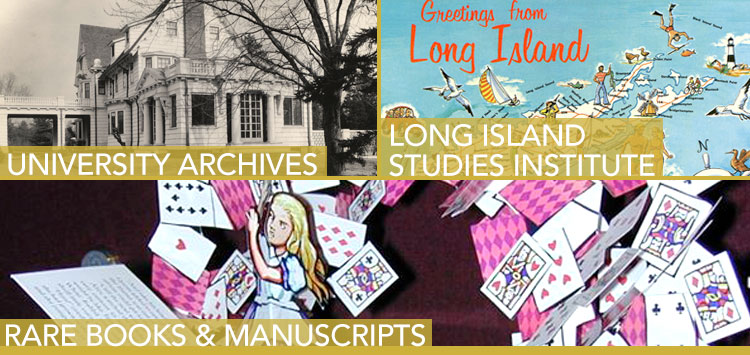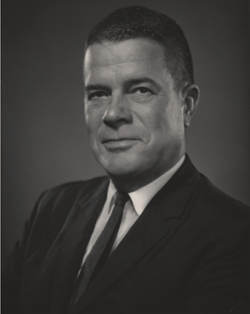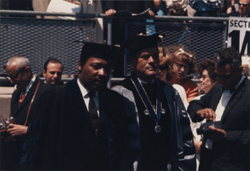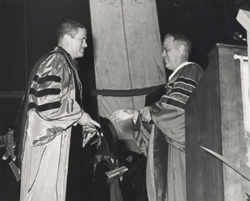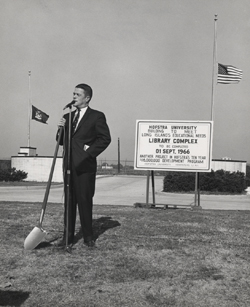Clifford Lee Lord
September 4, 1912 - October 22, 1980
Served as Hofstra’s President from 1964-1972
“If we accept the importance of the individual -- each individual, the other fellow – if we recognize him as an individual, a person, each with his own personality, his own peculiar reactions, his own hang-ups, his own special drives, special outlooks and individual weaknesses; and if we add to that the powerful brew of ‘love’ (not physical love, but charity, wisdom, understanding), where then is racism, or hatred, or discrimination, or intolerance, or war?
“So I bid each of you, as you start your career at Hofstra, to come as individuals, respecting the individuality of others….To welcome the chance to live together, to work together, to get to know each other….I bid you all be tolerant each of the other.”
“Our task is to build, not to destroy; to build a better University, to build bridges between the races, to build confidence in each other’s good intentions and good faith. We are all part of Hofstra: trustees, faculty, administration, students. We are all engaged in building a better Hofstra, a better society, a better world….”
– C. L. Lord
From the annual September President’s Convocation, 1971
Click to Play Audio from Oral History Interview
conducted on April 27, 1978
Transcript of Audio
I came in on the heels of part of the times the traditional college presidency, Dr. Adams, I think, did a very remarkable job here and took this little commuter college from the low point of World War II when it practically collapsed. Adams came in toward the very close of the War and built a very strong college and I think did a very remarkable job but he was the traditional, it was a traditional presidency which I inherited. The presidency from that day to this is changed dramatically and drastically.
One of the main, one of the immediate problems-the problem of space-this, remember, is right after the war, GIs were coming back in overwhelming numbers and there was just a very real pressure for space. I think one of my first official acts, certainly, was to break ground for the library, which had been already decided upon. The campus really was transformed in those next eight years. Everything on the north campus was built. The caliber of the students and faculty was increased rapidly now. Now, I inherited a good faculty, I don’t think there’s any question about it. There were some very good people there. The caliber of the people we were able to bring in, because we did do more in the way of insisting on advanced degrees, terminal degrees, than had been done right after the war.
The outstanding development ruling the achievement of university status. The Board had applied for and gotten university status from the Board of Regents. So what do we do with it? Well, there was already a School of Education which had just been created. Then a year later we went for a law school and that became a long and difficult thing and perhaps it was the greatest thing that happened for Hofstra while I was here. And in that I did a have a very considerable role to play.


